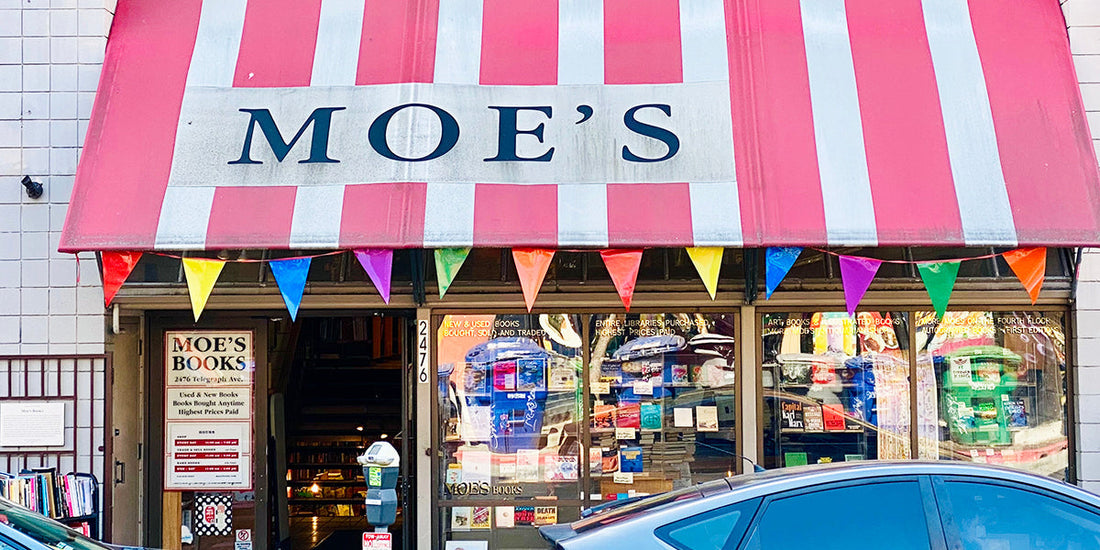
Moe’s Books
Share
Location: Berkeley, California
Overview:
Moe’s Books, founded in 1959 by Moe Moskowitz and his wife Barbara, is one of the most iconic independent bookstores in the United States. Nestled on Telegraph Avenue in the heart of Berkeley, this four-story bookstore holds nearly 200,000 volumes―spanning new releases, vintage titles, and rare finds across literature, art, architecture, philosophy, and more.
Moe himself was a fiercely independent thinker, known for his free spirit and anti-establishment ideals. From the beginning, Moe’s was more than just a bookstore―it served as a hub for ideas, conversation, and cultural exchange at the heart of the community. Today, his daughter Doris Moskowitz carries on that legacy, preserving the store’s founding spirit while evolving it into a bookstore for the modern era.
Its singular atmosphere and cultural gravity have also made it a favorite filming location―perhaps most famously in The Graduate, which introduced Moe’s to audiences far beyond Berkeley. To this day, Moe’s remains a sanctuary for the intellectually curious, and a beloved stop for travelers and book lovers alike.
―
We rode the elevator up to the fourth and final floor. Turning left, we found the Rare Book Room.
The moment we stepped inside, the air seemed to shift―quieter, older, somehow more reverent.
A gentle voice greeted us. It belonged to an elderly man with kind eyes and a head of white hair.
Even without being told, we knew immediately: this was the rare book specialist.
As with many old buildings in America, the floor was ever so slightly uneven―enough to make you feel like the room itself was tilting beneath your feet.
For a second, I wondered if it might collapse altogether. But soon I was lost in the world of books, my worry replaced by awe.
Original editions of Jack London, Steinbeck, and Jack Kerouac were packed tightly onto the shelves.
Behind glass sat rare and exquisite volumes―some with prices that took my breath away.
Just getting to see them felt like a privilege, a rare experience in itself.
There were even antique maps of Japan, and books by obscure Japanese authors I’d never heard of―carefully classified and beautifully displayed.
I thanked the specialist for letting us admire the collection, and we stepped back out into the open floor.
Ryo and I wandered off in different directions, each diving into the shelves at our own pace.
Time slipped by unnoticed as I read title after title along the spines, caught in a quiet, wordless rhythm.
Eventually, Ryo returned.
“Have you seen that section over there yet?” he asked.
“Not yet,” I said, and we made our way downstairs together.
It was then I realized:
There was no way we could see everything Moe’s had to offer.
And though Ryo had clearly found a favorite corner to explore, I was already running out of steam.
So I said, “Maybe it’s time to go.”
But not before making one last stop at the gift shop.
I’ve always loved the gift shops you find in bookstores, cafés, and museums across the U.S.
They let you take home something small but meaningful.
A tangible piece of memory, tucked into your suitcase.
And more often than not, the design is just plain excellent.
―
Postscript.
After returning home, I watched the 1967 film The Graduate.
As soon as that familiar street appeared on screen, I couldn’t help but smile.
We had been there―on that very street.
